

As China and Russia mark the 70th anniversary of diplomatic
relations this year, a Sino-Russian Teacher Education Forum was held at Beijing
Normal University on June 20, 2019.
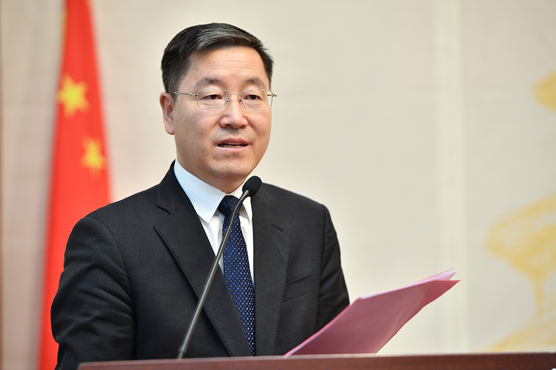
Zhou Zuoyu, Vice President of Beijing Normal University
This Forum on 'the future of education and education of the future' was co-hosted by Beijing Normal University and the China-Russia Alliance of Normal Universities, organized by the Faculty of Education, BNU, and supported by the Russian Research Center of the Beijing Normal University. Among the attendees are Deputy Director of the International Cooperation and Exchange at Department of the Ministry of Education of the People's Republic of China
Xu Yongji, First Secretary of the Russian Embassy in China and Representative of the Ministry of Education and Science Igor Pozdnyakov, Director of the Russian Cultural Center Anatolievna Shegey Olga, Senior Professor of Beijing Normal University Gu Mingyuan, Vice Presidents of Beijing Normal
University Zhou Zuoyu and Chen Li, Dean of the Faculty of Education, Beijing Normal University Zhu Xudong, and school leaders, practitioners and researchers from 14 Normal Universities.
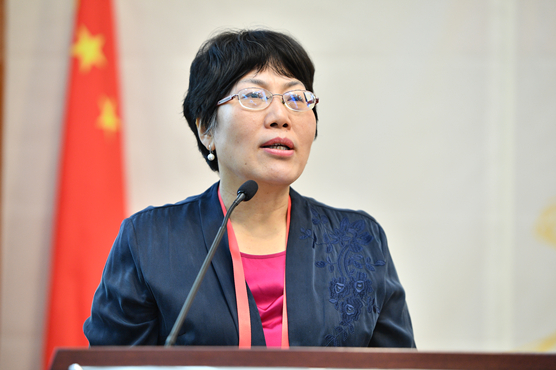
Chen
Li , Vice President of Beijing Normal University
In 2014, the China-Russia Alliance of Normal Universities was established with the support of the education ministries in both countries. At the start, six Chinese universities, including Beijing Normal University, East China Normal University and Northeast Normal University, and nine Russian universities including Moscow State Pedagogical University and Herzen University, were part of the alliance. Two Chinese universities, Jiangsu Normal University
and Jiangxi Normal University, later joined the alliance. Over the years, many exchange projects, scientific research cooperations, competitions, forums
and
other activities have been held by the alliance.
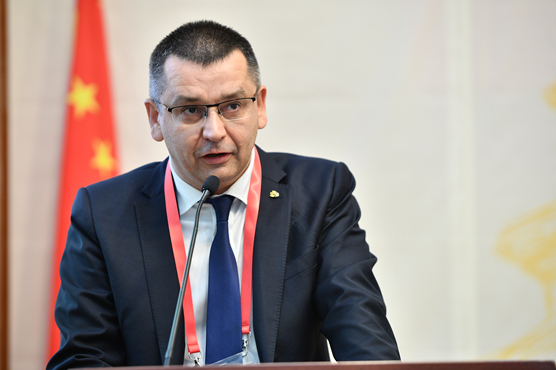
First Secretary of the Russian Embassy in China and Representative of the Ministry of Education and Science Igor Pozdnyakov
This most recent forum was themed on the future of education, and delegates discussed future technology related to education, the comparison of
management models and other issues.
Meanwhile, two important projects of the alliance are 'Go to Moscow' and 'Go to Beijing'.'Go to Moscow' is a Russian competition set up in 2014, under
which, students of universities in the alliance who score good marks get a scholarship to study Russian at Moscow State Pedagogical University.In turn,
the 'Go to Beijing 'project,
which was set up this year, lets Russian students study Chinese at Beijing Normal
University.
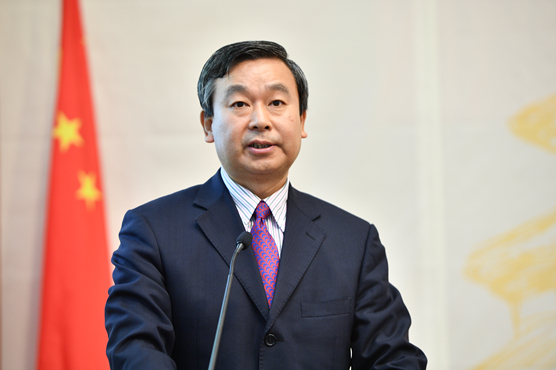
Xu
Yongji, Vice Director of Department of International Cooperation and Exchanges,
Ministry of Education of PRC
Communication between China and Russia in education has a long
history.
Soon after the founding of the People's Republic of China in 1949,
Chinese higher education institutions invited education experts from the former
Soviet Union to help Chinese teachers, develop curricula and formulate teaching
systems.
'The former Soviet Union's education model has had a long-lasting influence on China, and it has helped in building the framework for China's teacher education in modern times,' says Li Zhibin, vice-president of East China Normal University.

(from left to right)
Gu Mingyuan, Professor of Beijing Normal University
Kortava Tatiana, Vice President of Moscow State University
Li Zhibin, Vice President of East China Normal University
When it comes to the aims of this alliance, Zhou Zuoyu, vice-president of Beijing Normal University, says, 'Since we established the alliance, we've set
specific goals for each period of time. However, the
main intention of our efforts is to promote communication, deepen understanding
and discuss common problems. This feedback is beneficial for our educational
reforms.'
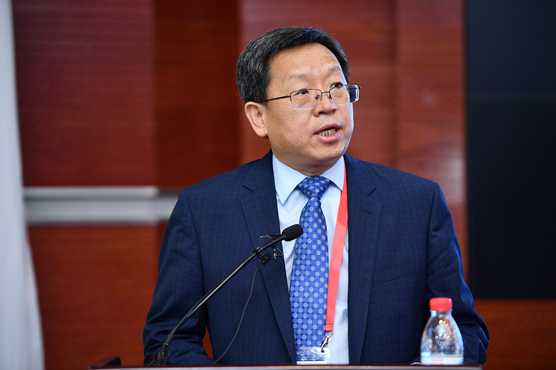
Zhu Xudong, Dean of Faculty of Education, Beijing Normal University
As for Lubkov, he says: 'Targets are like the horizon. The closer you get the more you will find they always remain ahead of you.
'We have achieved some short-term goals over the past five
years, and hope to deepen integrated development, do some scientific research
programs and cooperate to run some colleges in the next five years.'
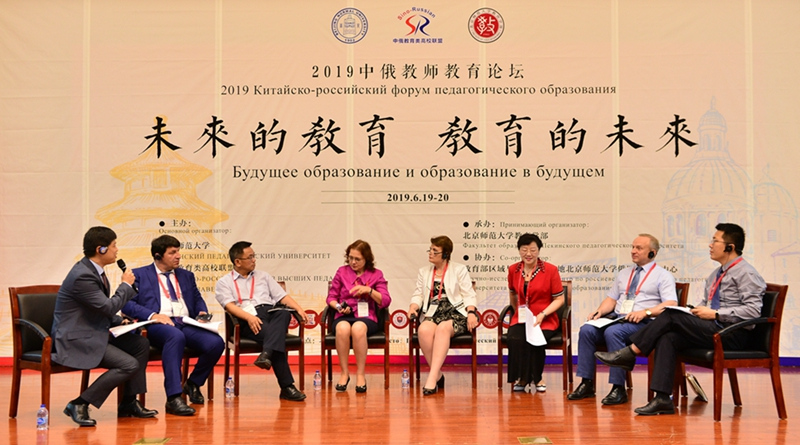
Presidents Roundtable on Teacher Education
According to Zhou, currently there are quite a few educational alliances, several of which have been joined by Beijing Normal University. Among them,
this one works especially well, since China and Russia enjoy a
'good relationship' and have a 'shared eagerness' to
promote communication.
'Our frequent contact has deepened mutual understanding, and
has made many of us friends,' says Zhou.
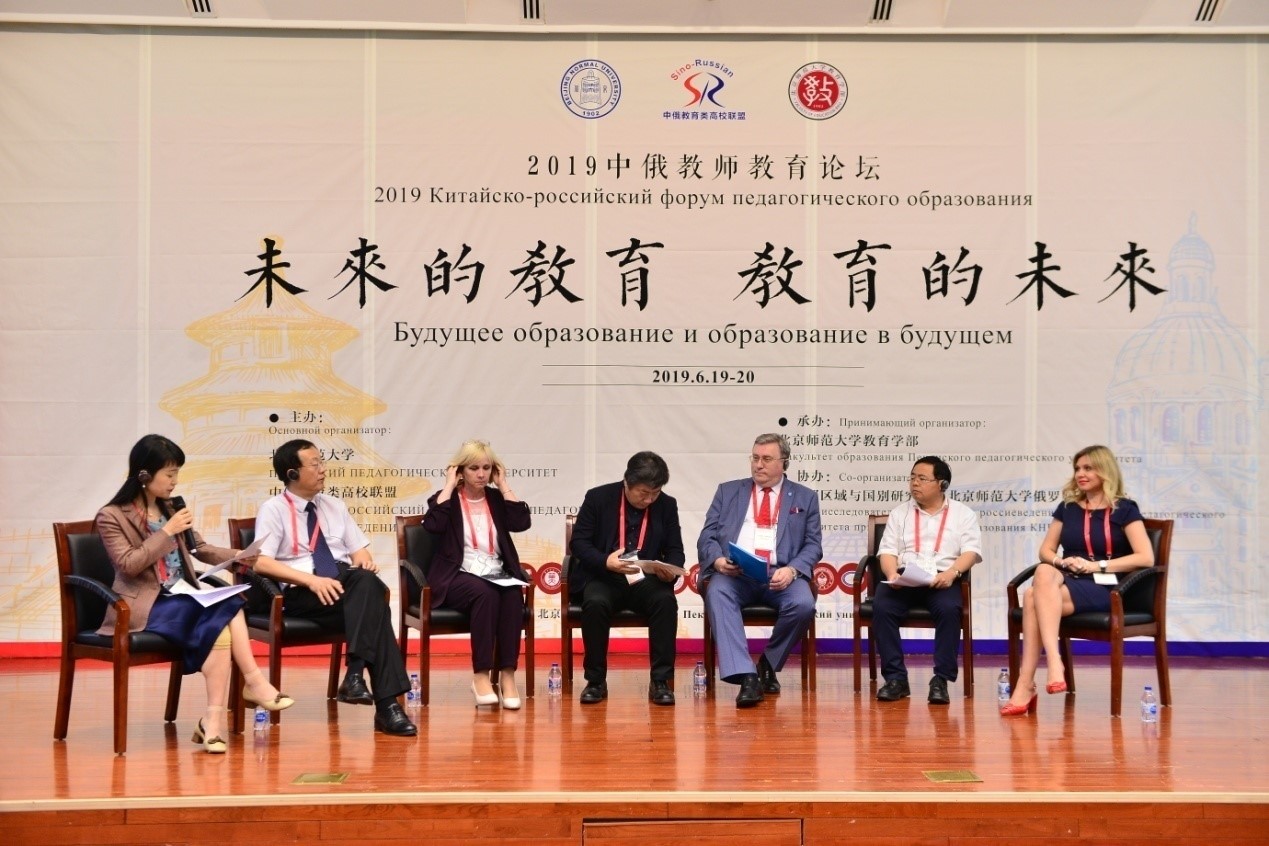
Presidents Roundtable on Education Technologies
'This alliance can be regarded as a model of educational, academic and emotional communication and friendship.'
Originally texted by China Daily
Link: http://www.chinadaily.com.cn/cndy/2019-07/03/content_37487346.htm
Edited by Wang Hejia